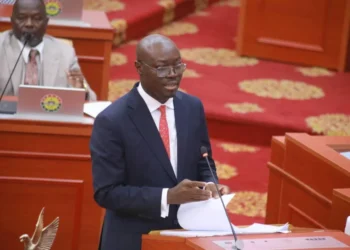In the quest for a sustainable future, the energy sector has been at the forefront of discussions, with a significant focus on transitioning from fossil fuels towards renewable energy sources. However, recent developments and analyses suggest that this transition may be facing more challenges than anticipated, leading some to argue that the dream of phasing out oil and gas entirely is a fantasy.
The notion that we can completely phase out fossil fuels within a reasonable timeframe is based on several assumptions. One of the primary assumptions is that renewable energy technologies will rapidly scale up to meet global energy demands.
While there has been significant progress in renewable energy technologies, such as solar and wind power, the reality is that these technologies still face substantial barriers to widespread adoption. These include intermittent issues (solar and wind power are dependent on weather conditions), storage challenges, and the need for extensive infrastructure upgrades.
“In the real world, the current transition strategy is visibly failing on most fronts as it collides with five hard realities. A transition strategy reset is urgently needed and my proposal is this: We should abandon the fantasy of phasing out oil and gas and instead invest in them adequately reflecting realistic demand assumptions.”
Amin Nasser, CEO of Saudi Aramco
Moreover, the energy transition is not just about replacing fossil fuels with renewables; it also involves the development of new energy carriers and systems. For instance, hydrogen and electric vehicles are seen as key components of a decarbonized future.
However, the production, distribution, and use of hydrogen, as well as the charging infrastructure for electric vehicles, are still in their early stages and require significant investment and technological advancements.
Demand for Fossil Fuels Remains Strong

Despite the push towards renewables, the demand for fossil fuels continues to grow, driven by factors such as economic growth, population increase, and the need for reliable and affordable energy sources.
According to the International Energy Agency (IEA), global energy demand is projected to rise by 25% between now and 2040, with fossil fuels still accounting for a significant portion of this demand. This growth is particularly evident in developing countries, where access to modern energy services is limited, and the cost of transitioning to renewables is high.
Furthermore, the energy transition is not just about reducing emissions; it’s also about ensuring energy security and affordability. Fossil fuels, despite their environmental impact, offer a level of energy security and affordability that renewables cannot match at scale. Policymakers must balance the imperative to reduce greenhouse gas emissions with the need to ensure energy security and affordability for all citizens.
Nasser said alternative energy sources have been unable to displace hydrocarbons at scale, despite the world investing more than $9.5 trillion over the past two decades. He said that wind and solar currently supply less than 4% of the world’s energy, while total electric vehicle penetration is less than 3%.
Policy in the Energy Transition
Policymakers play a crucial role in guiding the energy transition. However, the path forward is not straightforward. On one hand, policies that incentivize renewable energy and discourage fossil fuel use are necessary to drive the transition.
On the other hand, policies must also address the practical challenges associated with scaling up renewable energy and managing the transition in a way that does not disrupt energy markets or exacerbate energy poverty.
One approach is to adopt a technology-neutral policy framework that supports all forms of energy, including fossil fuels, but with clear incentives for cleaner technologies. This approach allows for a more gradual transition, minimizing the risk of energy shortages or price spikes while encouraging innovation in renewable energy technologies.
“We should phase in new energy sources and technologies when they are genuinely ready, economically competitive, and with the right infrastructure,” Nasser said.
The energy transition is a complex and multifaceted challenge that requires careful consideration of both the technical and economic realities. While the goal of phasing out fossil fuels is laudable, it is essential to recognize that this transition will take time and will likely involve a mix of energy sources, including fossil fuels, for the foreseeable future. Policymakers must navigate this landscape carefully, balancing the need for environmental sustainability with the need for energy security and affordability.
The energy transition is not a fantasy but a reality that requires thoughtful and pragmatic policies. By acknowledging the ongoing role of fossil fuels in the global energy mix and focusing on innovations that make renewable energy more viable and accessible, policymakers can guide the world towards a more sustainable and resilient energy future.
READ ALSO: West Africa’s Battle Against Military Takeovers Demands Vigilance























